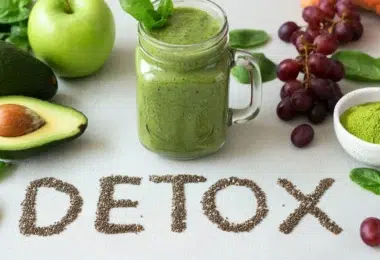
Kratom and Yoga: A Holistic Approach to Wellness
Introduction: The Synergy of Kratom and Yoga In today’s fast-paced world, people are increasingly turning...
View PostYour cart is currently empty.
Continue Shoppingor 4 interest-free payments with 

Oregon is a state that actively pursues the rights and freedoms of its residents and visitors. As of July 1, 2015, those over the age of 21 were given the legal right to purchase, possess, and partake of marijuana for recreational purposes. But what about kratom? Is kratom legal in Oregon?
The answer to this question is yes. Anyone over the age of 21 can legally purchase, possess, and take kratom. It’s become increasingly popular in the Beaver State, and fortunately, there are no current issues surrounding this much-debated plant as there are in other parts of the country.
While kratom remains legal in Oregon, that’s not to say it’s completely unregulated as it is in some other states. Oregon House Bill 4010 was introduced in early 2021 and passed by both chapters of the state legislature in June. Governor Kate Brown signed HB 4010 into law in June 2022.
While it may seem that kratom legislation is a bad thing, it’s not. Advocates for the plant want it regulated to ensure its safety. The American Kratom Association was instrumental in helping HB 4010 gain acceptance in the Oregon legislature. Its main highlights include:
The future of the legality of kratom in the state seems stable, but this could change. Kratom’s legal status in the country could constantly be challenged. Fortunately, organizations and advocates are fighting to keep kratom both safe and available. With some states enforcing bans on the product and the possibility of the DEA again pursuing it being reclassified as a Schedule I drug, the battle continues.
Kratom enthusiasts all have their favorite Golden Monk kratom product, and residents of Oregon are no different. Here’s a look at the top five selling products in the state.
For those not yet accustomed to kratom’s unique bitterness, Golden Monk’s Kratom Capsules are a popular choice. Each one contains 500mg of premium kratom powder and is available for all of our red, green, and white strains. Easy to pop into your gym bag, purse, or backpack, these capsules are perfect for those with busy schedules.
Another Oregon favorite is Golden Monk’s Kratom Gummies. Each contains 10mg of premium kratom extract and is packed in a GMP-compliant facility. Perfect for beginners, there’s no need to measure or mix anything. Much like our kratom capsules, these gummies are great for those who have yet to acquire a taste for kratom’s bitter taste.
Connoisseurs who prefer to do things more traditionally and ceremonially are big fans of Maeng Da Kratom Powder. Available in white, red, and green strain varieties, Maeng Da powder is a high-quality hybrid that many long-time kratom users enjoy. Like all of our other kratom powders, it’s available in 250, 500, and 1000-gram pouches.
Many kratom customers call Red Vein Bali Kratom Powder “the perfect strain.” This could be because it combines the leaves from two famous Indonesian kratom trees, one from Borneo and the other from Sumatra. Not many Indonesian kratom cultivators know the exact proportions to produce this unique powder, and that just adds to why its fans are so intrigued by it.
Golden Monk’s Green Malay Kratom Powder originates from Malaysia and is a popular choice for newcomers and enthusiasts alike. Known for its almost neon-like shade of green, Green Malay seems to have a very balanced alkaloid concentration, which could add to its benefits. This powder is a top choice for many kratom devotees.
Kratom is currently legal in most of the country. To stay current on current kratom legislation in your state, it’s essential to stay involved. Consider joining the American Kratom Association. The legalities of kratom and its regulations remain an ever-changing world.
What we refer to as kratom comes from a tree native to Southeast Asia, including Thailand, Indonesia, and Papua New Guinea. The tree’s scientific name is Mitragyna speciosa, and the indigenous people of the regions where it is grown and cultivated have long used it ceremonially. Now popular in the West, enthusiasts sometimes call it “nature’s cheat code” due to its many benefits.
Once the leaves of this tropical evergreen tree have matured, they are harvested and left in the sun to dry or dry in modern processing facilities. The drying process is crucial to preserving the alkaloids contained within its leaves. Once the moisture has been removed, the leaves are ground into a fine powder by hand or more modern methods. Once ground, kratom is ready for packaging.
While more research is needed before a definitive answer can be given if kratom can help with depression, some studies have suggested that it can; some have found a perceived lessening of symptoms. Those suffering from depression and other mental health issues who don’t want to take unnatural pharmaceuticals could find a lessing of symptoms by following traditional and ancient treatments. However, they should consult with a mental health professional before proceeding with alternative healing methods.

Introduction: The Synergy of Kratom and Yoga In today’s fast-paced world, people are increasingly turning...
View Post
In the search for natural wellness solutions, kratom has emerged as a powerful ally in...
View Post
Kratom’s popularity throughout the U.S. isn’t slowing down, but it’s also safe to say kratom...
View PostPRODUCT CATEGORIES
Must be 21 or over to purchase these products. The manufacturer and distributors of these products assume no liability for the misuse of these products. We do not ship to states, counties, municipalities, and other jurisdictions in which the sale or possession of these products is prohibited.
We conduct marketing to promote our products and services, we may also market, promote, or offer for sale Products that are manufactured, provided, or developed by third-party entities. Pursuant to our Privacy Policy & Terms of Use.
These statements have not been evaluated by the FDA. The products offered for sale on this site are not intended to diagnose, treat, cure, mitigate or prevent any disease and/or affect any structure or function of the human body.
By clicking yes you also confirm that you have read and agree to GoldenMonk's Terms of Service and Privacy Policy and Goldenmonks’s service provider’s terms of service and privacy policy.